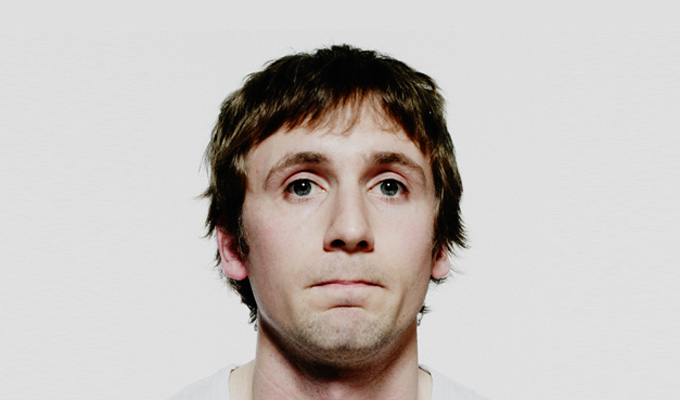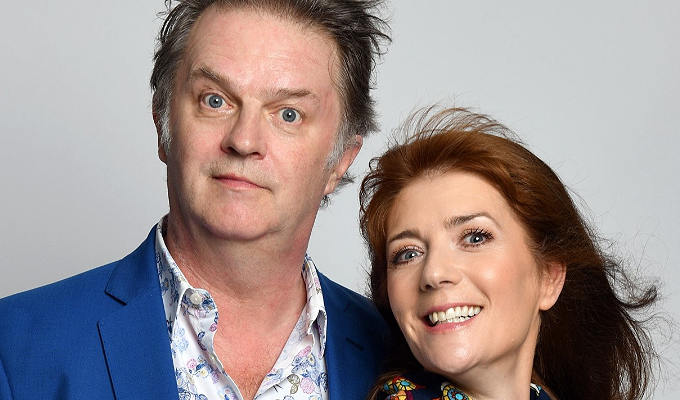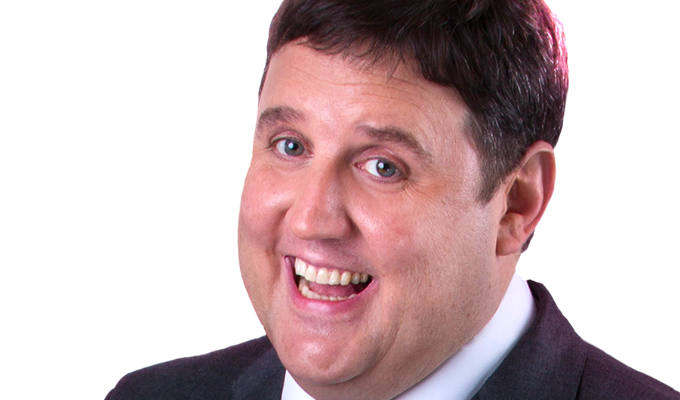
'Cliches about travel are easy to avoid'
Tom Basden on writing Gap Year
Can you tell us a bit about the show?The show is about travel in essence, it’s about people escaping from something at home or people going out and hoping that by travelling and seeing the world they will learn something about themselves, they’ll improve their lives and find answers to some questions, or even find out what the questions that they should be asking are.
It’s a voyage of discovery for these people, but I think in miniature every episode is about them trying to achieve something quite simple, or trying to enjoy themselves or trying to actually make the reality fit with their expectations.
That’s the thing that strikes me about travelling and going to other places is that it’s very hard to enjoy, I think, because in your mind you spend so long thinking about what the place is going to be like, and you are already experiencing it indirectly before you go, that when you get there the reality rarely meets up to what you expect and I think it’s about these character’s attempt to reconcile themselves to what’s happening and learn to love it in the process.
How do you avoid falling into the clichés of travel?
I’ve spent a lot of time in Asia over the past few years, especially in China where the show starts. I feel like actually the clichés about places and travel are quite easy to avoid, because when stuff happens to you it’s so odd and so specific that it’s so much more interesting to use real stories, situations and people.
So a lot of the stuff that happens in the show is based on things that have either happened to me or people I know, or happened to me when I was 20 and doing a similar trip around Thailand.
I feel that, on the one hand, there are some universal truths about travel and the difficulties that happen and the strains it puts on people, which will always be the case, and then there are the specific weird and wonderful things. I hope that the show is a mixture of the two, I really hope that the people who come to see the show will see that we’re trying to avoid the cliché that people expect: the trustafarian, posh people with dreadlocks and bongos and ethno-hessian backpacks, we’re trying to avoid that and do something a bit more bespoke and modern.
I think a lot of the clichés about travel come from the late 1990s , around the time of The Beach, and the world has changed so much, and not just these countries but also the way that social media and connectivity has changed. You can’t really get lost in the same way now as you could in the year 1999 when I went travelling and my parents would hear from me once a fortnight, you can’t really do that anymore.
Why did you want to set the show in China?
Because I wanted to put the characters in a situation that they would have no idea how to deal with.
Though China is changing day by day in an alarming and fascinating way, what I love about it is they don’t care about Westerners particularly. There’s an interest, but it’s not like South East Asia where people are learning English to go into the tourist trade or where they’re trying to get tourists into their shops.
There is more of a healthy disinterest that there is so much going on in China that the pocket money of a few Westerners coming over travelling is of no interest to people. So it’s a great place to explore with freedom and not feel any pressure or interference.
I wanted to put the characters in a place where they had no idea how to get around, where people genuinely don’t speak English, or at least outside of hotels or large cafes, people would speak about as much English as people would speak Chinese in London, I wanted to put them in that situation, just to show how irrelevant The West is in some parts of the world.
I think we’re lured into thinking that everyone really cares about what’s happening in the west and they don’t, and rightly so. So that was very deliberate wanting to start them in China, in a place where they can’t communicate, in a place that was completely other.
The other aspect of this is that even though they are set in this incredible back drop, the focus is on them and what’s going on inside…
That’s the kind of thing I’m really drawn to about stories of travel. That actually when people go away together and you take a relationship on the road, or a friendship or romance or whatever, the things that made the relationship work or fail you take with you, nothing gets solved by getting out of the place that you are from.
I think that stuff is really fascinating, particularly when you’ve got people standing by the Great Wall of China or the Petronas Towers in Malaysia and they are still talking about the stuff that they’d be talking about in the pub in Kingston six months ago and arguing about the same kind of stuff, I think that’s the truth about the way people travel… unfortunately.
For all of us who are slightly over 30 it was kind of agony to see Tim Key’s character Greg’s relationship with the gang...
I guess it was very important to me to have Greg because I feel like there’s something about travelling when you’re 22 or 23 where the stakes can be fairly low. If you end up losing all your money or going to the wrong country you’re going to go home and it’s going to be fine.
I wanted to have a character there who has put a lot on it, is at a different stage of his life and is travelling to escape a pretty terrible situation rather than to just experience more of the world. Greg is the kind of person that I remember seeing quite a lot while I was travelling, I remember spending a few days with an introspective and slightly broken man from Birmingham who was in his late thirties who was doing this kind of trip, who would sometimes mention a family but at other times very much not mention it.
It fascinated me that he was doing this kind of trip and put a lot on the idea of going to Jerusalem and achieving an spiritual awakening or understanding in the process, even though a lot of it is trudging round the back streets looking for a falafel shop. That character and that need to get away was something that really interested me, and I wanted to embrace the idea that Greg is not a nuisance because I feel that the first assumption of young people is that anyone over the age of 35 is either irrelevant or creepy, especially people not in a relationship with kids or successful, there’s a feeling of ‘these are people that are just left overs of society and aren’t worth our time’.
On a practical note, technically how complicated was it to shoot to work out there?
It was a really complicated shoot and very stressful at times. There are a lot of issues with getting permissions and travel and logistics, that meant that we were having to adapt quickly and re-write a little bit, and really work out what we cared about because we’d have to make choices and it’s not easy to do it all, exactly in the same way as when you were travelling for real you just have to work out what stuff you really want to see and what stuff you’re fine with missing.
Sorting out the China part of the shoot was really hard, luckily I didn’t have to get all those permissions myself. There was certainly a time when we were considering what would happen if we couldn’t go and if we had to re-locate a large portion of the shoot to Taiwan.
Ultimately, we were incredibly lucky and people worked very hard and were persistent and we got exactly what we needed.
The thing that I find so amazing about China is that just by walking down the street everyday there will be something happening that you could never predict that just feels completely crazy. There is no way that with all the money and all the technology in the world we would be able to fake something that even came close to the kind of richness and life that you get in any scene in any location in China.
Was it also difficult to not dwell on where you are?
The interesting thing is that you dwell on it a bit but I think that the truth of travel is that dwelling on things is not really part of human nature, it doesn’t really work like that. There’s a part at the end of episode one where they’re all looking at the sunrise and then Greg says “How long do you want to spend looking at this and May says “Yeah, that’s fine”. Y
ou can trek all day to get to a waterfall but once you see it and once you’ve taken your photo, that’s it and you go home. There’s only so long that you can look at it and then say “I’m going to make sure I don’t forget this now.”
Now that you have cameras that we have, people will just take a photo and won’t even remember to look at it with their eyes. I feel like the way we move around now is more like we play Pokemon Go: you get ‘I’ve seen the Sistine Chapel and I’m now going to see the Colosseum” I feel like people don’t really sit and dwell on things in the way that Byron and Shelly would travel in the 1810s - just sit and think about a building for a day.
I think they just see it take a photo and move on.
Gap Year starts on E4 this February. Interview courtesy Channel 4 Press
Published: 6 Feb 2017






